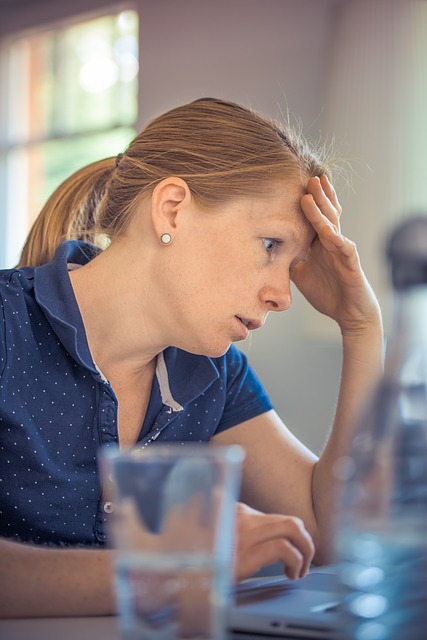What is Burnout?
- Burnout is commonly referred to as a reaction to chronic or prolonged stresses from your job or workplace. However, recent research has indicated that people from all walks of life may experience burnout and not just from work. Those even in caring roles are also at risk of burnout.
- Burnout can impact all parts of your life, mind and body. It can have serious consequences including reduced work performance and life satisfaction as well as lead to illnesses such as depression or chronic fatigue.
What causes burnout? Work overload is often a factor. Because of economic pressures, some employers demand that employees work longer hours, at times for less money. For some, job insecurity, lack of control over their work, or feelings of being treated unfairly contribute to burnout. So does dealing with unclear priorities or conflicts with coworkers.
Burnout can also be self-inflicted. In the pursuit of career goals and greater income, some try to fit ever more work into their life. Becoming over committed will lead you on the road to burnout.
Symptoms to look out for
- Feeling disengaged or disconnected
- Loss of motivation – at work, with your relationships and life.
- Feeling anxious before the work week starts (Sunday night blues)
- Feeling extremely irritated or resentful towards other people, your job, workplace and colleagues.
- Headaches
- Muscle tension
- Stomach aches/digestive issues
- Feeling exhausted and drained. Lacking energy to perform basic tasks.
- Change in appetite
- Insomnia or disrupted sleep
6 ways to rebalance
1. Cut back on cardio
Extreme cardio and intense workouts can leave you feeling completely depleted and exhausted—the opposite of what you’re hoping to feel after a workout. In addition, they can also cause you to gain weight when you’re chronically stressed or suffering from adrenal fatigue.
That’s because intense workout sessions make your body to think you’re in fight-or-flight mode, producing extra cortisol. In response, it holds on to extra calories and stores fuel as body fat (especially around your middle).
Instead start taking long walks and doing moderate strength training and yoga sessions to balance your energy.
2. Mindful meditation
Likely, you’ve heard that meditation is also beneficial when it comes to stress. Practicing mindfulness-based stress reduction, on a daily basis such as noticing your thoughts (especially the negative ones), becoming more aware of your reactions, etc. You could also try the Calm app.
3. Eat the right foods at the right times.
The Paleo-Mediterranean styles of eating which focus on low-glycemic, whole foods, including lots of veggies, pulses and legumes, lean protein, healthy fats, and as little sugar and empty carbs as possible, are helpful for most people.
Avoid inflammatory foods like sugar, empty carbs (aka packaged snacks), dairy, gluten, and alcohol. Try to eat breakfast before 10 a.m. so no intermittent fasting while you’re feeling exhausted,and eat small meals regularly, to keep your blood sugar levels consistent and avoid cravings and bouts of the hangries.
Breakfast could be either a smoothie (made with berries, banana, almond milk, and plant-based protein powder) or toast and an egg. Lunch, a big salad (mixed greens, some sort of protein, avocado, tomato, pumpkin seeds, and whatever other healthy toppings you like for flavour.) Dinners, perhaps something like zucchini with turkey bolognese; some sort of soup; or salmon and veggies.
4. Say no to unnecessary events.
Uttering that little word can be difficult for many, and the tendency to want to please everyone and do everything can fuel burnout and silent depression! Getting rest and focusing on your health, at this point, is more important. Be selective about what events and plans are worth it, and which are not.
Co developer of RescueTime , Jory MacKay, recommends doing a time audit. This 3-step process helps you understand where your time is actually going and brings your intentions (how you want to spend your time) and actions (how you actually spend it) back in alignment:
5. Go to sleep early.
It can be a paradox, when you have no energy and feel like falling asleep all the time, but a healthy sleep pattern is an important part of the puzzle. Ideally strive to be in bed by 9 and when possible, such as, on the weekends sleep in until 9.
A few tips that can help improve sleep quality:
- Try a white noise machine!
- Read a book before bed rather than scrolling social media
- Use an eye mask to block out ambient light
- Vaporise essential oils such as lavender and bergamot to promote relaxation.
6. Practice self-care.
You may think of taking a day — or even an hour — to simply focus on whatever you feel like sounds impossible or even lazy. But simply listening to your mind and body and giving yourself what you truly want for even a short time is a step toward self-care.
Self-care means not pushing yourself when your body is telling you to stop. Self-care is not doing things someone else wants you to do all the time.
Burnout is a complex issue. While this blog is meant to help you understand and self-diagnose the signs and symptoms of burnout, its important to recognise burn-out as a serious situation, one that might require help from a professional such as your Dr and a psychologist. Enlisting the help of a naturopath or nutritionist for lifestyle, diet or sleep support can help with recovery as well.

